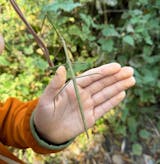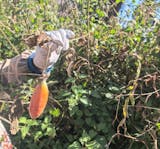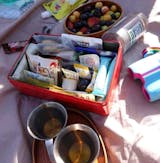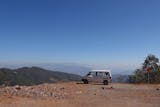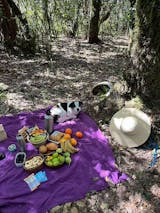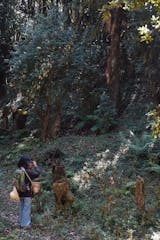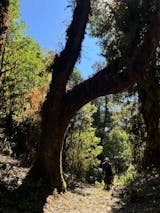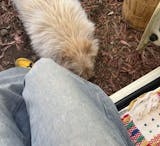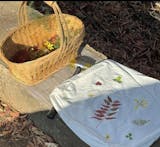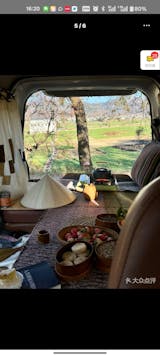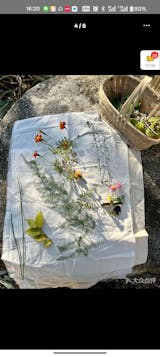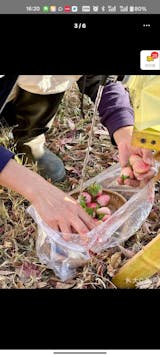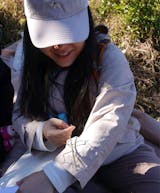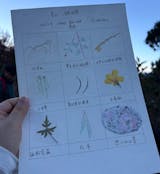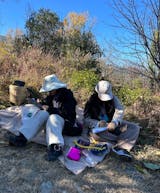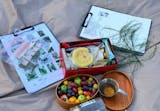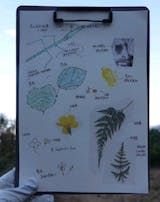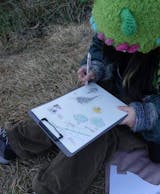
Jason | Several Iranians I met during my trip
Today I went to the Shiraz Post Office to send an express package to Reza in the far northern province of Mazandaran. His home is in the town of Amol on the Caspian Sea.
The first time I met him was when I was smoking in the corridor of a house in Kashan last year. He came to borrow a light, polite and straightforward. Reza was very young, with thick hair and beard shaved neatly, handsome and innocent, and his conversation showed that he was well educated. He and Majan had just married, and they drove out for a New Year's trip with another couple. It was about 600 kilometers from their hometown to Kashan. In Iran, unmarried couples cannot live in the same room, so they shared a room with two men and a room with two women.
In the evening, they invited us to chat on the roof of the guesthouse. The guesthouses in Kashan are all traditional sunken courtyards. The courtyards can be seen from the roof, which is a large square pit. Perhaps because the Gobi Desert is hot, the room design is similar to a cave dwelling, which can keep out the heat in summer and keep warm in winter. It is very exquisite. The courtyard usually has a corridor and a central rectangular blue mosaic pool. The roof of the room is equivalent to the ground floor, and you can walk up. Reza took out the private liquor he brought to entertain Xiaojing and Xiaoqiang. They both love drinking and were very happy. Next to the inn is the dome of a grand and ancient mosque. The lights were on before midnight, which exuded an exotic atmosphere for us.
Later , Xiaojing and I received a sincere invitation from Reza. We drove for two consecutive days from the desert in central Iran, stayed in a small town called Damghan for one night, crossed the Alborz Mountains, and arrived at the green and humid town of Amol in the north. Compared with the traditional route, such a trip to an unknown destination is more exciting to us.
We stayed at Reza's house for three nights. They had a three-bedroom apartment on the second floor. They made a bed for us on the floor in one of the guest rooms. The living room was very large and beautifully decorated in a completely Western style. The next day, I attended a family gathering of his friends, with dozens of people in a family garden. Singing and dancing are not allowed in public places in Iran. But at the family gathering, everyone was singing and dancing, and was full of enthusiasm. Some people prepared various barbecues, and some people built a bonfire to stew a large pot of thick soup. Everyone worked together in an orderly manner. Just after we went to the party for a while, Reza said to me: "If we don't want to stay for a while, we'll leave." "No, it feels really good here." In the end, we had barbecue at noon and had a picnic dinner. In the evening, he and Majan were going to visit Reza's aunt and take us with them. His aunt married into a family with a strong traditional Muslim religious atmosphere. They all wore black burqas (chardo), which was very different from the Westernized Reza family. Catching up with Mr. Abbas and taking a group photo was very different. When we were almost at my aunt's house, Reza's brother-in-law had already stood at the door with a headscarf for Majan. Majan was in her early twenties, ran a fashion clothing store, took Instagram photos and short videos for promotion, and rejected the headscarf, but when she arrived at her aunt's house, she had to deal with it.
On the third day, we visited his parents' home again and had dinner together. Reza's mother cooked. His father was a factory director before he retired. He lived in a big villa. There were some things he bought from traveling around the world. The large living room and tables and chairs were a bit like the reception room of national leaders. We chatted until about 11 o'clock and said goodbye. Late at night, we went shopping in the supermarket together, sat on the street and drank coffee and chatted, talked about our lives, work, customs, and bought ice cream. Reza said that coffee shops have been very popular in recent years. People have no other entertainment at night, so they drink coffee and chat. It was cold at night, but even the cheapest coffee shops had natural gas heating systems. It was very comfortable to sit on the roadside. Energy here is almost free (gasoline was about ¥ 0.3 yuan/liter at that time, cheaper than water).
During these days, Reza tried not to let us be disturbed by his enthusiasm, and would observe us from time to time to see if we were uncomfortable. He was a decent, warm and sincere person. We were lucky to meet Reza, but this was not accidental. Many ordinary Iranians have such characteristics: decent and sincere, regardless of whether they are rich or poor. For example, Mr. Abbas, whom I met at the post office this time.
When I was mailing something at the post office, the staff didn't speak English, so it was a bit difficult to communicate about filling in the address. At this time, an Iranian man leaned over and asked, "Do you need help?" He looked to be in his forties, not tall, slightly bald, and wearing a shirt and trousers. His expression was serious, but very friendly, and he spoke fluent English. I said, "It's almost done, there shouldn't be any problem." However, he still took the initiative to ask the people at the post office if there was anything they didn't understand, and still helped me fill in some of the last information. Then he asked, "Do you have Iranian currency? If not, I can help you pay the postage." "Thank you, I have some." I took out a few banknotes to show him. He said, "That's no problem." And left.
I took the filled-in form and the wrapped postal box and went to another window, where the weight and payment were done. After calculating the fee, the staff asked, "Do you have a card?" I said I only had cash. She probably didn't have change, looked embarrassed, and said something I didn't understand. When I came here last year, after knowing the epidemic, in order to reduce the contact with paper money, Iranians popularized credit card swiping, and almost every store has a POS machine. When I was not sure how to communicate, the Iranian man came back, took out his card, and paid me the fee. Maybe he expected that I might encounter payment problems, and came back to confirm. He took out a business card with Dr. AbbasAli Paydar, oral pathologist, written on it. He asked, "How many days do you live in Shiraz?" I answered, "About two days." "If you have any questions in the next two days, feel free to call me, the number is here," he pointed to the phone number on the business card. "I'll give you the postage," "No, no," he said, and he left directly.
I was still a little overwhelmed, immersed in a feeling: the sincere help, thoughtful consideration, and concise words. When I walked outside the post office, I saw Mr. Abbas had turned left at the corner. I suddenly felt that I should take a photo with him as a souvenir, so I chased him. Not far after turning, I saw him stop at a bakery to buy bread. I asked him if we could take a photo together. He happily agreed, and Wang Yue took a photo for us.
I don't think it's so accidental to meet such Iranians. The temperament of many of them, plus the confirmation, give me a sense of decency. They have clear eyes, treat people sincerely, and try not to cause you social troubles. They will leave after helping you.
When traveling in Iran, like in most places in the world, there are cases of overcharges in popular tourist destinations, and there are occasional unpleasant experiences, although they are rare. But because of people like Reza and Abbas, even if there are any, they can completely offset any other bad experiences.
The first time I learned about traveling in Iran was when Shao Yue told me many years ago, "I went to Iran recently and felt it was great. I have been a backpacker for so many years and have lost interest in traveling. But this time in Iran, I found the feeling of backpacking again." I think so too. Iran is a place that can impress people. It is not only an experience like entering a Persian and Islamic movie, but also has a long history and culture, and lovely Iranians. You don't need a visa, you can get there by buying a plane ticket.
2024.04.15
Shiraz
The Inn Where I Met Reza2023.03.23

Reza's New Year family gathering at a friend's house 2023.04.02

Reza and majan, Xiaojing 2023.04.02

Caught up with Mr. Abbas and took a photo






